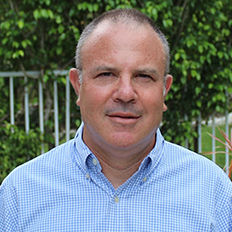 HotelConnex VP of business development and client solutions David Marcus suggests a 2021 hotel procurement strategy amid the coronavirus pandemic.
HotelConnex VP of business development and client solutions David Marcus suggests a 2021 hotel procurement strategy amid the coronavirus pandemic.
With the traditional kickoff to the hotel request-for-proposals season just a few months away, the clock is ticking for travel buyers to decide how to approach the sourcing process for their 2021 program amid the Covid-19 pandemic.
In the current landscape, the options vary and can include extending current contracts through next year as advocated by some hotel chains, deferring the sourcing process and/or abandoning fixed rates in favor of dynamic discounts. Before determining their approach, however, buyers first should understand how Covid-19 is changing the hotel market.
For one, hotel rates will be very volatile for the foreseeable future. Even with suppressed demand likely to continue into next year, rates will not be following the usual buyer's or seller's market dynamics. As demand rebounds in certain markets, some hotels there will remain closed, and others will operate at limited capacity due to social distancing requirements and possibly staffing constraints due to financial considerations. As such, demand could outpace supply in those markets. Hotels also might be looking to recover costs from investments made in new sanitization equipment and protocols.
Still, hotels are eager to spur a demand rebound, so buyers should see a competitive RFP season with hotels willing to offer attractive rates. While lower staffing levels have led certain chains to state their intentions to suspend the RFP process, individual properties have indicated willingness to negotiate fixed and dynamic rates and engage with their corporate clients.
In fact, savvy buyers who have effective relationships with property contacts are better equipped to support their travelers when an issue or stumbling block occurs as well as when the market becomes tight. Chain deals cannot supplant those relationships.
Chainwide dynamic agreements, meanwhile, currently provide lower than market rates, but traditionally they benefit buyers with very large programs. Generic chain deals being offered to buyers with midsize programs come with strings attached, such as volume requirements and thresholds. Travel management company hotel consortia programs can provide supplemental value in non-primary markets.
Many buyers will not yet have a clear picture of their own travel volumes in the months ahead, so a creative approach might be required. One scenario, for example, could involve negotiating dynamic rates initially from November to March, introducing a fixed rate in a few destinations from April 2021 based on client volume and destination-specific pricing trends at a specific point in time and concurrently revising city rate caps in policy.
Buyers will need to address a few issues specifically related to Covid-19 in negotiations this year, including:
- Cleanliness standards. All buyers should confirm cleanliness standards as part of the negotiation process. The enforcement of social distancing and cleanliness standards in guest rooms, meeting rooms and other common areas is paramount, and measures will need to be addressed in contracting.
- Amenities. The need and availability of hotel amenities will be different. For example, what will free breakfast entail? Will "grab and go" replace the buffet? It may not make sense to negotiate in breakfast or even the shuttle service if buyers are not confident that the appropriate social distances measures are in place or if travelers will not be comfortable using the services.
- Room availability and upgrades. The fact that many hotels will be operating at lower inventory levels, with many operating at 50 percent capacity, make room type negotiations more challenging for some buyers. The likelihood of securing room types beyond standard will decrease, and it will be incumbent on buyers to sharpen their pencils in to obtain upgrades for their travelers.
- Cancellation policies. While hotels currently are offering flexibility with bookings to spur demand, they might adjust their cancellation policies down the road, given the planning and costs hotels need to apply to spacing out incoming and outgoing guests and having guests placed in every other room and other measures to manage guest flow. With inventory constraints and social distancing measures, cancelations will be more costly for hotels and they will likely need to apply more stringent penalties which could result in increased costs for buyers in the form of fees. Cancellations and penalties are a negotiable item in the RFP process, and buyers should be prepared to address them.
The one thing that has not changed in the wake of Covid-19 is that the most successful hotel sourcing programs still will be those led by highly engaged travel managers who use multiple components to maximize savings and traveler satisfaction. These include direct and targeted negotiations with hotel properties in their key markets, using a robust secondary program that is leading in coverage, discounts and benefits and having technologies to deliver inventory options to take advantage of lower pricing. Moreover, it is likely that demand will increase for more ongoing hotel program management, optimization and data-driven insights – including the development and analyses of city rate caps, compliance studies and the identification of new negotiating opportunities throughout the course of the year given market fluctuations. As the industry changes, relying on a single component might seem efficient and easier, but it remains the farriskier option.